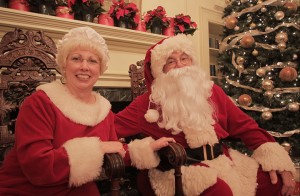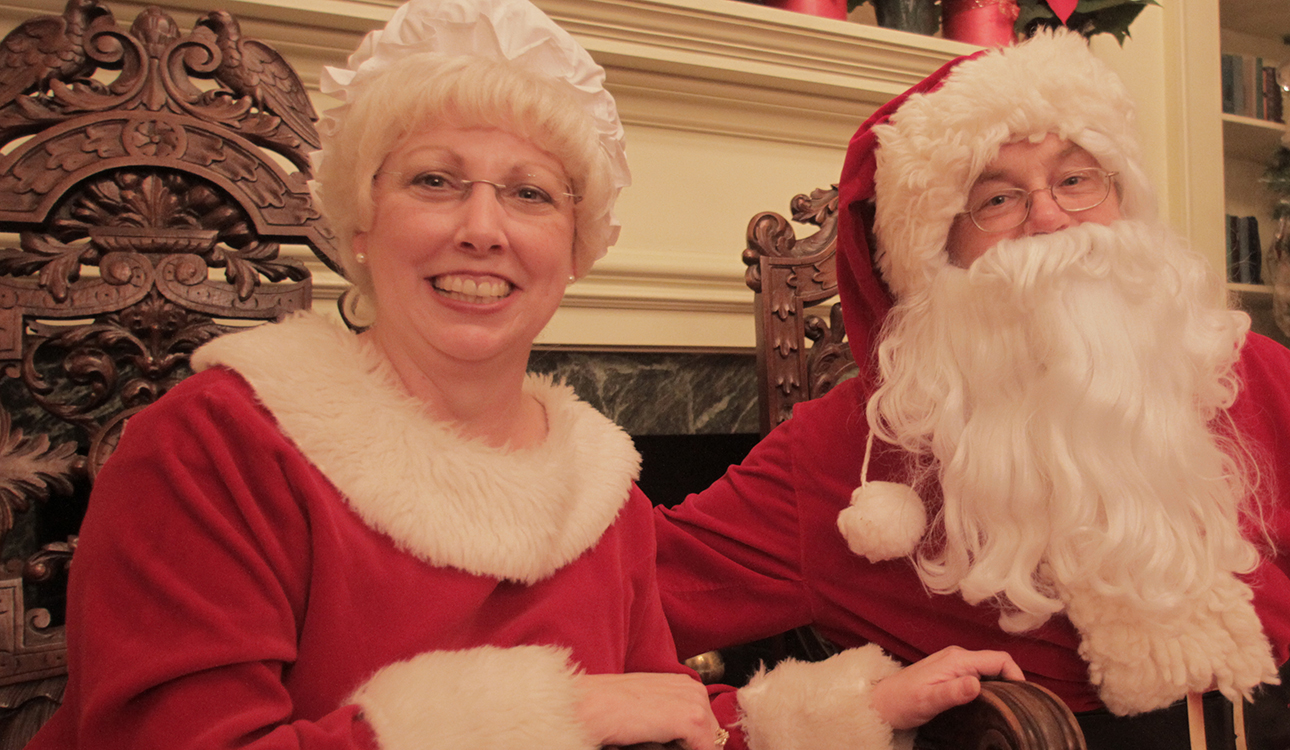
Travis Taylor | Lariat Photo Editor
Reporter
The growing secularization of the Christmas season has left some Christians wondering how they should celebrate.
According to a 2010 Gallup poll, 95 percent of Americans celebrate Christmas, but only half of them describe the holiday as “strongly religious.” In the end, the poll concluded that although the holiday has religious roots, it is celebrated by nearly all Americans, including 80 percent of non-Christians.
“Part of the reason for this is Americans’ widespread involvement in nonreligious aspects of Christmas, including exchanging gifts and getting together with friends and relatives,” the poll said.
In his article published in a Church of God magazine The Good News, managing editor Scott Ashley said he does not celebrate Christmas.
“Christmas is driven by commercialism,” he said.
Ashley also said Christmas is mentioned nowhere in the Bible and Dec. 25, the day most Christian churches celebrate the birth of Christ, is not the day Christ was born.
“The Christian holiday is largely a recycled pagan holiday,” he said.
The reasoning behind the December date is symbolic, said Dr. Bill Pitts, professor of church history.
“It is the darkest time of the year, and Jesus is the shining light in the darkness,” he said. “A lot of scholars are aware this is fairly arbitrary.”
The exact month and day of Christ’s birth is unknown, but the early Christians, surrounded by people celebrating the spring equinox, put the conception of Christ in the spring and thus his birth in winter, Pitts said.
He said early Christians saw themselves as a society within a society, a community desiring their own subculture.
“Christmas was an alternative to celebrating the equinox,” he said. The spring equinox is when the plane of the Earth’s equator passes the center of the sun, making night and day equal length.
However, Pitts said many of the traditions Americans think of as secular often have Christian undertones.
“The precedent to modern gift exchanging is the wise men,” he said. “The wise men came and offered gifts to God. Gift gifting is a wonderful thing to do. It’s good to be in a charitable mode.”
Pitt said Christians should be cautious of some aspects of the secular celebration.
“There is the temptation of materialism and that is where Christmas gets to be misinterpreted,” he said. “Christmas is about the reflection of God’s presence.”
Although Christians should be conscious of what the holiday is about, Pitts said much of it can be good.
“It’s too easy to discount it all,” he said.
Some people think that encouraging Santa leaving gifts under a tree takes away from the focus on Christ being born.
Dr. Kyle Welty, an adjunct professor in the religion department and Baylor Interdisciplinary Core, recalls going to his grandparents’ house at a young age and being confused why they did not have a Christmas tree.
“My grandparents were Anabaptists, which believe in the authority of the Scriptures,” he said. “They wanted to set themselves apart from the rest of society.”
Welty said he understands their religious convictions, but he does not think it’s bad for a Christian family to use secular traditions, such as a tree, as part of their Christian celebration. Welty celebrates the modern Christian traditions with his three children, all of whom are under the age of 7. He said age determines how in-depth parents can go when acknowledging the true meaning of Christmas.
“We haven’t prohibited Santa and presents and all those things,” he said. “We have just tried to balance it.”
Welty said he does not think there is any harm in the secular traditions as long as parents are also intentional with the Christian traditions.
“I try not to ruin my children’s fun,” he said. “There is no need for them to be left out. As they get older, you can go deeper.”
Temple junior Brent Schulz said he remembers waking up Christmas mornings with presents ready under the tree.
“I believed in Santa,” he said. “My favorite part was just having everyone altogether.”
Although his family celebrated with Santa, and a tree and presents, they also read the nativity story of out the Bible and his dad once read a candy cane poem that was about Jesus. Welty said it was beneficial to balance secular traditions with the Christian tradition of Advent, which is the beginning of the Western liturgical year, anticipating the birth of Jesus.
“Advent, the longing and waiting for Christ, gives children that balance,” he said. “It lays the foundation.”
Welty said he does not think Christians need to be aggressive, picket or reject the holiday.
“Most people connect the holiday to religion,” he said. “I don’t necessarily think that may be the case in a few generations, as more and more people take out the Christian aspect.”
The best way for Christians to put Christ in the center of their holiday is to start with their own family, Welty said.
“Christian tradition should be immanent in the home,” he said. “Rather than a campaign to put Christ back in Christmas, families can celebrate Christ, kids can talk to their friends and it can spread informally.”
Pitt said his family has made an effort to make Christ the center of their traditions. He said his wife taught the children, and now grandchildren, the story of Jesus’ birth and has one of the children recite it. His advice for how Christians can celebrate Christmas is to participate in Advent, set up a nativity scene and to go caroling, especially in nursing homes.
“You would be surprised what that does to people,” he said.






